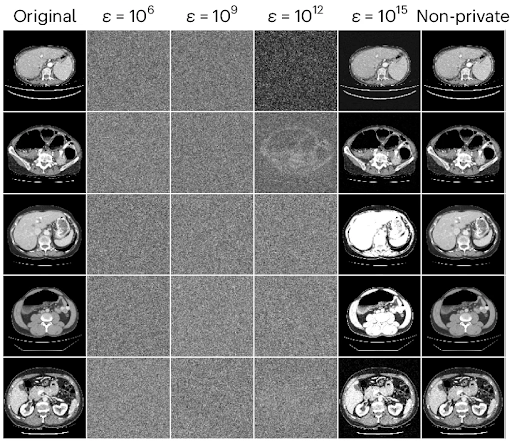Healthcare workers spend much of their day doing paperwork instead of caring for patients. Studies show that about 74% of their time goes to tasks like scheduling, documenting, billing, checking insurance, and talking with patients. This heavy workload causes many workers to feel tired and stressed. For example, in orthopedic offices, nearly half of the surgeons feel burned out because of too much paperwork and poor communication.
These repeated tasks take up a lot of time and may also cause mistakes, which can affect patient care and raise costs. In the U.S., missed appointments cost doctors an estimated $150 billion each year. About one-third of patients find it hard to reach their doctors by phone, which adds to the problem and wastes time and money.
Because of these issues, healthcare offices need ways to cut down paperwork without hurting patient care. Using AI is becoming a helpful way to make these tasks simpler.
AI and Workflow Automation in Healthcare Administration
Artificial intelligence (AI) includes technologies like machine learning, natural language processing, and robotic process automation (RPA). These tools are now used in healthcare offices to do routine jobs automatically. Examples are patient scheduling, checking insurance, processing claims, and patient communication. This means less manual work and fewer mistakes.
Automating Scheduling and Patient Communication
One of the busiest jobs in healthcare offices is answering phones. Staff spend a lot of time taking calls, setting appointments, and reminding patients about visits. AI phone systems, like Simbo AI, help by handling calls, texts, emails, and web chats. These AI helpers work all day and night and speak many languages. This makes it easier for patients to communicate and reduces missed appointments. The system connects with Electronic Medical Records (EMRs) so the AI can see patient history and follow office rules for better responses.
Reducing Staff Burnout through Task Automation
When AI takes care of scheduling, appointment reminders, and insurance follow-ups, staff have more time to focus on patients. In orthopedic offices, AI systems can think and adjust in real time to handle complex tasks. This boosts patient contact, cuts down missed visits, and helps avoid staff burnout by lowering paperwork.
AI also looks ahead to predict busy times and changes appointments to fill openings. This helps staff work better and serve more patients, especially in busy offices.
AI Call Assistant Reduces No-Shows
SimboConnect sends smart reminders via call/SMS – patients never forget appointments.
Improving Revenue Cycle and Billing Accuracy
AI helps with money matters too. It can speed up claims, find errors, handle denied claims, and track payments. This cuts mistakes, speeds cash flow, and improves finances for healthcare groups.
More than 46% of U.S. hospitals now use AI to simplify financial tasks. RPA checks insurance instantly, manages approvals, and automates billing processes. AI-driven steps shorten payment cycles, lower errors, and keep data safe according to laws like HIPAA.
HIPAA-Compliant Voice AI Agents
SimboConnect AI Phone Agent encrypts every call end-to-end – zero compliance worries.
Patient Experience and Operational Efficiency
Automation does not just help inside the office; it improves how patients experience care. Patients get steady messages, easy booking, reminders, and clear instructions before visits. AI platforms use many ways to communicate, like calls, texts, or web chats, in the patient’s preferred language.
For office managers, better scheduling means fewer no-shows and better use of clinic resources. AI also helps with follow-ups after hospital discharge, which lowers repeat hospital visits and saves money.
AI studies past data to forecast staffing needs. This helps hospitals plan shifts, save on overtime, and balance work. Happier staff are likely to stay longer.
Security, Compliance, and Rapid Deployment
Protecting patient data is very important. AI companies must follow strict rules, including HIPAA in the U.S. The best AI systems meet these security standards to keep data safe.
AI platforms can be set up quickly—sometimes in less than 30 days. This quick start helps healthcare offices improve without long breaks or problems.
AI-Enhanced Workflow Automation: Coordinated Healthcare Operations
AI does more than just handle simple tasks. Many healthcare offices use different systems, like EMRs, billing software, insurance platforms, and scheduling tools. AI can link these systems to automate the whole patient process.
This smooth connection helps move patients through steps like insurance checks, scheduling, preparation, and billing without delays. Automation platforms like ServiceNow work with experts to make these workflows run well.
AI also uses data analysis to alert staff about possible problems, such as risk for hospital readmissions or needed equipment check-ups. This helps offices plan better and avoid issues.
Voice-activated AI tools let clinicians work hands-free, which can reduce tiredness. In the future, AI may even write clinical notes and create care plans automatically.
Specific Benefits for Medical Practice Administrators and IT Managers
- Improved Staff Productivity: Automating routine tasks frees up time for patient care.
- Enhanced Patient Access: Multilingual, 24/7 chatbots reduce missed calls and no-shows, helping patients get care faster.
- Financial Gains: Faster billing and approvals improve cash flow and cut waste.
- Regulatory Compliance: Automated records and safe data handling keep patient privacy secure.
- Flexibility and Scalability: AI systems can be quickly set up and customized to fit office needs.
- Staff Retention and Satisfaction: Less paperwork lowers burnout and makes jobs better for staff.
Voice AI Agent Multilingual Audit Trail
SimboConnect provides English transcripts + original audio — full compliance across languages.
Industry Trends Amplifying AI Adoption in Healthcare Administration
By 2026, the U.S. expects a 10% shortage of registered nurses with over 350,000 jobs open. Because of this, healthcare needs technology to keep running well. Administrative tasks take up about 30% of healthcare spending in the U.S., costing billions.
The automation market is growing fast and is expected to pass $80 billion by 2025. More than 90% of healthcare groups plan to keep or increase using automation. RPA is common now, used by over 35% of groups to help with billing and payments. Workflow tools stop repeated manual steps and speed up patient care.
Doctors spend over half their time on electronic health records (EHRs). AI tools help reduce this workload by using predictions, alerts, and automatic note writing. These tools lead to better patient care and help reduce doctor fatigue.
Closing Remarks on AI and Workflow Automation in Healthcare
Healthcare is moving from simple automation to smart AI systems that cover clinical, office, and money tasks. These tools help U.S. medical offices handle growing work and improve patient care. Using AI in office work supports money management, staff health, and patient access. This makes AI an important part of updating healthcare in the U.S.
Frequently Asked Questions
What is the primary problem UnityAI aims to solve in healthcare operations?
UnityAI addresses the growing gap between patients and providers caused by missed calls, language barriers, and scheduling friction, which lead to billions of dollars in annual losses and prevent patients from receiving timely care.
How much annual revenue is lost due to missed appointments and no-shows?
$150 billion is lost annually due to missed appointments and no-shows in healthcare.
What percentage of patients struggle to reach their provider by phone?
33% of patients experience difficulty reaching their healthcare providers by phone.
How much staff time is spent on administrative tasks versus patient care?
74% of healthcare staff time is spent on administrative tasks instead of direct patient care.
How does UnityAI’s conversational AI improve patient scheduling?
UnityAI’s conversational AI automates patient scheduling across all communication channels, eliminating complexity and enhancing efficiency with a 90% automation rate and human-like conversations.
What communication channels do UnityAI’s AI agents support?
UnityAI’s AI agents support omnichannel communication, including voice, SMS, email, and web chat, ensuring seamless patient engagement across platforms.
How quickly can UnityAI’s AI agents be implemented in healthcare systems?
UnityAI agents can be deployed and go live in less than 30 days, facilitating rapid integration with existing healthcare workflows.
What security and compliance standards does UnityAI adhere to?
UnityAI complies with HIPAA, SOC 2 Type II, and ISO 27001 standards, ensuring the highest levels of patient data protection and privacy.
How do UnityAI agents deliver natural and effective patient interactions?
UnityAI agents understand context and medical terminology to hold intelligent, empathetic conversations that resolve patient inquiries efficiently.
What customization options are available with UnityAI agents?
UnityAI offers full customization of tone, protocol logic, and escalation rules, allowing healthcare providers to tailor interactions without compromising enterprise-grade governance.
The post Transforming Healthcare Administrative Workflows: Leveraging AI to Free Up Staff Time for Direct Patient Care and Improve Operational Efficiency first appeared on Simbo AI – Blogs.











